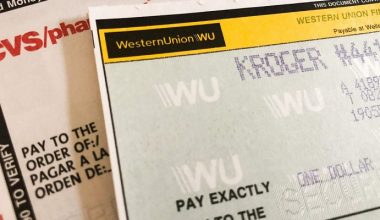A mortgage broker acts as the mediator between the buyer and the lender. He ensures the borrower gets the best mortgage deal in the mortgage industry, and the lends hops on a loan that will be repaid.
More so, many mortgage brokers are regulated by their state to assure they comply with the states banking and finance laws in the jurisdiction of the customer.
In the US, the mortgage broker industry is regulated by 10 federal laws, 5 federal enforcement agencies and 49 state laws or licensing boards.
Find out more about what it entails to become a Mortgage broker as you read through this article.
Let’s get started with the basics.
READ MORE: Mortgage: Simple 2021 Guide for Beginners and all you need Updated!!!
What is a Mortgage Broker?
A mortgage broker is a middle man between the mortgage borrower and the mortgage lender. In other words, he is the intermediary between two individuals where one is the borrower and the other is the lender.
They connect mortgage lenders and borrowers without using their own money to establish the connection.
The mortgage broker also gathers all necessary documentation for mortgage lenders for underwriting and approval purposes.
Mortgage brokers get to know about the financial standing of the borrower, which then helps them to determine which lender is the best fit for them.
They help a borrower save time and effort during the mortgage application process, and lots of money throughout the life of the loan.
Once you settle with a lender that’s the best fit for you, your mortgage broker then collaborates with the bank, the closing agent, and your real estate agent to ensure the transaction goes smoothly.
Mortgage brokers earn cash through commissions known as origination fees, loan size, and may work independently as an employee of a larger mortgage brokerage firm.
READ MORE: Deed Of Trust: Overview, Mortgage vs. Deed of Trust & How it Works
How Do Mortgage Brokers Work?
A mortgage broker is an intermediary between the borrowers and the lenders in the mortgage market.
Whether a borrower wants to buy a house, or to renovate it, a mortgage broker gathers loan options from various lenders and presents them to the borrower. The borrower then selects which of the lenders is the best fit for him/her.
In addition, the mortgage broker gathers all required financial information such as incomes, assets, credit reports, or employment documentation for assessing the borrower’s financial ability to request a loan and pay it back.
After carrying out his assessment, the broker then sends these documents to potential lenders for decision making.
He also determines an appropriate loan amount, as well as the borrower’s ideal loan type, and then submits it to the lender for approval.
Throughout the course of the transaction, the broker monitors the transaction to ensure it goes smoothly.
Once the loan has been approved, the mortgage funds are loaned in the name of the mortgage lender, while the mortgage broker receives a commission known as “origination fee” from the lender as a reward for his services.
Furthermore, the borrower may be responsible for paying all or some of the origination fees as stated in the closing statement.
However, the broker only gets paid when the transaction is complete.
READ MORE: Best mortgage lenders: 2021 picks updated (+ detailed guide)
Duties of a Mortgage Broker
The duties of mortgage brokers differ based on their services and offerings. However, the general duties of a broker include;
- Carrying out researches to determine the best source of mortgage for the client
- Collecting all relevat financial documentation for loan approval.
- Providing a money-saving option for their client
- Completing the mortgage application laon on behalf of the client.
- Marketing their service to clients.
- Educating themselves on the financial position of their client
- Ensuring that the client understands all legal disclosures
- Submitting all required documents to the lender.
- Assisting the client with obtaining pre-approval for a mortgage.
READ MORE: Manual Underwriting Process for Mortgages, FHA & VA Loans
Advantages of a Mortgage Broker
The following are the advantages of using a mortgage breaker.
#1. A Broker May Have Better Access
There are higher chances that you’d get a good mortgage deal when you go through a mortgage broker than if you try to source for mortgage loans yourself. This is because, some lenders work exclusiely with brokers and rely on them to bring suitable clients.
More so, brokers may be able to get special rates from lenders than you’d ever get by yourself.
#2. A broker can manage your fees
When working with a lender, several types of fess may be invlolved. These fees range from origination fees, to appraisal fees and application fees.
In some situations, mortgage brokers may be able to cause mortgage lenders to waive some or all of the fees, which can in turn save you lots of cash.
#3. A broker saves you time
Absolutely! Mortgage brokers have regular contact with los of lenders, most of which you may not know about.
With that, they know which lender is the best fit for you and would even protect you from lenders with sketchy terms in their mortgage contract.
With these advantages, its best to research and determine which mortgage broker is best for you before deciding on a meeting date.
Disadvantages of a Mortgage Broker
As much as there are advantages, there are also disadvantages of a mortgage broker. Kindly find the disadvantages of a mortgage broker below;
#1. Brokers may not often guarantee estimates
When a mortgage broker presents you with offers from lenders, they use the term “good faith estimate.” This means that the broker believes that the offer embodies the final terms of the deal.
In some cases, things don’t always turn out as planned. If the lender changes the terms, you may end up paying a higher rate or extra fees.
#2. Your Broker May Have a Different Interest From Yours
Your main goal in seeking for a mortgage is to get one that offers low fees and affordable interest rate.
While for a mortgage broker, he often gets his fee for bringing a lender. This fee is sometimes based on the amount of mortgage and will differ from lender to lender.
Hence, a broker’s goal is to get you a lender that suits you and ensures they get a cmpensation for their service.
#3. You may Owe a Broker fee
Mortgage brokers are eithr paid by you or the lender. If the lender pays the broker, then you have to be careful so as to not end up collecting a very expensive loan.
Then, if you pay the lender, ensure you factor it into the mortgage before deciding what mortgage loan is good for you.
Also, be sure to settle all your fees before upfront before you start working working with a broker.
#4. Some Lenders May Not Work With Mortgage Brokers
Some lenders are realizing that broker-induced mortgages are more likeluy to be futile than those gotten through direct lending.
When you work with these brokers, you may not have access to the lenders. And this inhibits your chances of getting a better mortgage term if you sourced directly.
#5. A Broker’s deal may not be the best for you
As much as a mortgage broker works to ensure that you get the best mortgage deals, it’s nit always the case. Some lenders may offer you the same rates and terms that they offer the brokers. In some cases, it can even be beter.
So, instead of completely relying on the broker to get you a good deal, you can go ahead to research for yourself.
READ MORE: Secondary Mortgage Market: Step By Step Guide On How It Works
How Much do Mortgage Brokers Make in The US?
According to Indeed, Mortgage brokers in the US earn about $87,849 per year, with an annual commision of $52,000.
The highest paying cities for Mortgage Brokers are; New York ($126,922/yr), Nashville ($119,789/yr), Orlando ($104,909/yr), Houston ($100,785/yr), Denver ($100,483/yr).
PayScale on the other hand reports that the average annual salary for a mortgage broker is $58,574 per year.
This proves that the salary of a Mortgage Broker varies depending on his/her place of work.
How Do Mortgage Brokers Get Paid In The US?
Mortgage brokers are usually paid by lenders or brorrowers, but never both. This law also prevents mortgage brokers from charging hidden fees or basing their compensation fee on the borrower’s interest rate.
Regardless, you can still choose to pay the mortgage broker yourself. Before working with a broker, borrower’s are encouraged to look around for mortgage brokers and know how much they’d charge as comoensation fee.
Different factors will determine which mortgage broker you end up using. So, ensure you do a thorough research.
READ MORE: Personal Finance: Basics, Importance, Types, Management ( + Free Softwares)
Is it Easier to go Through a Mortgage Broker?
By using a mortgage broker rather than an individual direct lender, who typically has tougher approval criteria, people who are less qualified purchasers or who are purchasing less conventional properties will find it easier to discover loans for which they can be accepted.
What is the Work of a Mortgage Broker?
An intermediary that connects mortgage borrowers and lenders, but who does not use their own money to create mortgages, is known as a mortgage broker. In order to find the best fit for the borrower’s financial position and interest-rate requirements, a mortgage broker connects borrowers with lenders.
Is it Better to Work With a Mortgage Broker or Bank?
Although a mortgage broker might speed up the mortgage application process and provide a larger range of possibilities, going directly with a bank gives you greater control at a lower cost.
Is it Worth Getting a Mortgage Broker?
Because they are knowledgeable about important aspects of lenders’ requirements, qualified mortgage brokers are also worth their weight in gold. So if the lender you’re considering doesn’t lend on homes above shops or in council buildings, they would know and be able to recommend another lender who does.
What’s the Difference Between a Mortgage Broker and Agent?
A mortgage broker must have at least two years of work experience and must have completed and passed an approved mortgage broker course. This is the fundamental distinction between a mortgage broker and a mortgage agent. A mortgage broker is required to oversee mortgage agents as well.
Why do Mortgage Brokers Get Paid so Much?
Because a broker works on a commission basis, they are compensated for each transaction. A broker who charges 2% of the loan’s value, for instance, would make $5,000.
How Should I Prepare for a Mortgage Broker?
Bring bank statements from the most recent six months, paystubs from the most recent three months, and documentation of a deposit to your initial meeting with your broker or advisor.
Licensing for Mortgage Brokers in The US
If you are a mortgage professional, the first step to making the most out of your career is by obtaining a mortgage broker license.
Although mortgage license requirements differ by state, it’s still important that you know the major requirements.
1. The first step is to apply for license through the Nationwide Mortgage Licensing System (NMLS). When you apply, you’d incure the following charges;
- NMLS Processing fee
- Application fee
- Credit report fee
- Criminal background check fee
The total costs incurred will range from about a hundred dollars to 2,000 dollars depening on your state. While some states give a lump sum of all the costs, some states itemize the charges.
2. Eligibility Requirements
To be eligible for a mortgage license, you have to satisfy the following eligibility requirements.
- Must have professional experience of about one to three years in the industry.
- Take between 20 to 30 hours of classes through a stat or NMLS-approved course provider.
3. Individual Requirement
To qualify for a license, you’d need to satisfy the following requirements as an individual;
- Pass the NMLS course-approved exam
- Carry out a credit history report and criminal background check
- Have the required industry-related experience
- Fulfill the obligatory educational classes
- Live where the primary office is located
- Be either an owner of the company or a salaried employee, and remain with the firm for the duration of its licensure
4. Insurance Requirements
Before receiving your license, you’d have to post a surety bond with the state you are located in to protect your clients from damages resulting from different factors like fraud, misrepresentation, etc.
5. Location Requirement
Once you have satisfied all these requirements, you’d havae to secure a physical location for your company.
READ MORE: CONSUMER LOANS: Definition, Types & Rates
Mortgage Broker vs Loan Officer
When consumers want to buy a house, they ususally meet with a bank loan officer to determine their options. A bank loan officer offers the mortgage rates from his own financial institution.
While a mortgage broker on the other hand, works on behalf of the borrower to find the lowest and most affordable mortgage rates from a financial institution, As well as the best mortgage deal from several lenders.
However, the number of lenders a broker can work with is limited by the number of approvals he gets from each lender. And this is why borrower’s are advisedto carry out some research on their own.
Conversely, a broker works with several clients at one time, and does not get paid until a loan deal closes.
If a loan originates through a broker and is declined, he may apply to another lender. But if a loan coming through a bank loan officer is declined, the bank cannot take any further action concerning the loan.
Furthermore, some lenders prefer to work exclusively with mortgage brokers. This way they provide them with loan rates and terms that will otherwise not be available to the borrowers.
READ MORE: Zillow Mortgage Calculator: How Accurate is Zillow Mortgage Calculator? (+ Quick Tips)
Bottom Line – Is a Mortgage Broker Right For You?
The answer to this question solely depends on your needs. A mortgage broker can get you the best mortgage deals on the market, save you time, and in some cases money too.
But this comfort comes at a price. When choosing a lender, you’d have to pay close attention to the lender fees, as well as the compensation fees.
Also, to make the right decision about which lender to go for, compare yoour interest rate, the fees, and the closing costs.
Then you know which deal is right for you.
Good luck!
Recommendation
- Start Up Business Loans: Best Government Loans In The UK
- BUSINESS LOANS FOR VETERANS: Best Easy 2021 Guide and; US Practices
- PAYROLL LOAN: Definition &; Best Government Practices for any Business
- SBA MICROLOAN: Overview, Lenders, Program, Requirements, Cares Act
- SBA 504 LOANS Requirements for Hotels & US Residents, Updated!!! (Detailed Guide)






